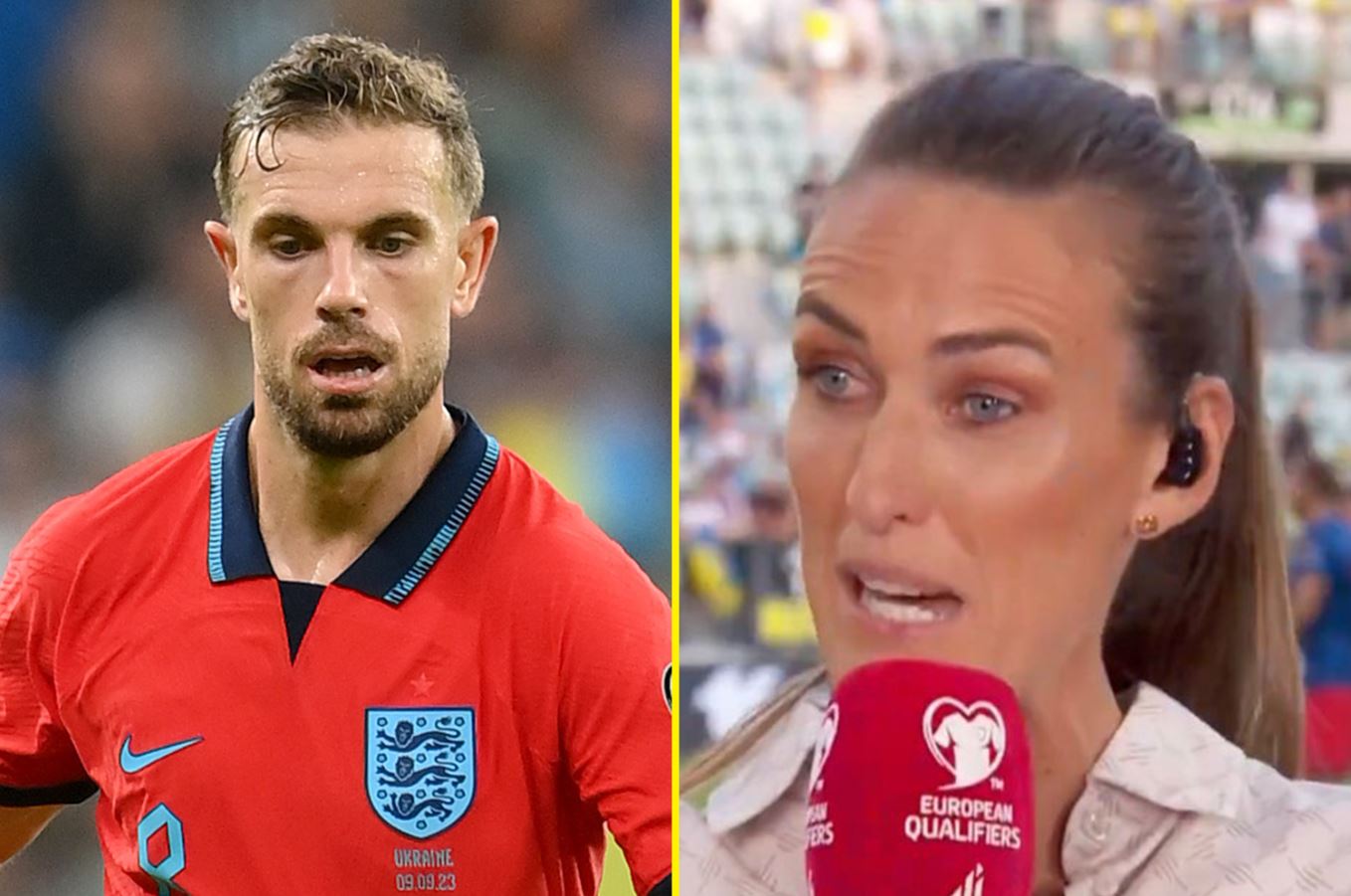Jill Scott Speaks Out Against Henderson’s Move to Saudi Arabia
Former Lionesses sensation, Jill Scott, has voiced her concerns and criticism over Jordan Henderson’s decision to transfer to Al Ettifaq, a team based in Saudi Arabia. The issue was brought to light during an England game against Ukraine, which ended in a 1-1 draw. As the match played out on Channel Four, the conversation naturally gravitated towards the topic of Henderson’s recent move.
Henderson’s decision has sparked numerous debates within the football community. His move from Liverpool, a globally recognized club, to Al Ettifaq, a team in a country with strict laws against homosexuality, has left many bewildered. This is particularly striking given Henderson’s prior affiliations and contributions to LGBTQ+ charitable causes. The juxtaposition of these two facets of his life has led some to label him as hypocritical.
For Scott, this issue is deeply personal. Being an openly gay woman, she expressed that she wouldn’t feel safe or welcome to watch Henderson play in Saudi Arabia. Sunderland, a city known for its passionate football followers, is where both Scott and Henderson hail from. Their shared origins make Scott’s disappointment even more poignant. She added, “Our hometown has always been about unity, passion, and supporting one another. It’s hard to reconcile that with this decision.”
Yet, reactions within the larger football realm have been mixed. While some players like Danny Rose and Gabby Agbonlahor have come out in defense of Henderson’s move, there is a significant portion of fans and professionals who find it hard to fathom. The Saudi Pro League, despite its immense financial resources, hasn’t been perceived to be on par with other leading football leagues in terms of game quality and talent showcased. This further complicates the reasons behind such a move for a top-tier player like Henderson.
England’s national team coach, Gareth Southgate, was not spared from the ensuing controversies. His choice to include Henderson in the squad for the international break led to raised eyebrows. There was a general sentiment among fans that players who have been consistently performing well, like James Ward-Prowse of West Ham, were overlooked in favor of Henderson.
In response to the backlash, Southgate came to Henderson’s defense. He asserted that team selection isn’t influenced by external debates but is based on the player’s abilities, dedication, and the overall balance of the team. “Jordan’s experience in high-pressure games is invaluable,” Southgate commented. “He’s demonstrated maturity and professionalism throughout his career. He’s been rigorously training and is in excellent form. I trust our fans to look beyond controversies and support the team and individual players wholeheartedly.”
Nevertheless, Henderson’s on-field performance during the match against Ukraine did not particularly stand out or silence his critics. England managed to secure a draw, but the team’s overall performance left much to be desired. With only four shots on target in the entire game, England’s attack seemed lacking. An earlier goal from Ukraine’s Oleksandr Zinchenko was neutralized by England’s Kyle Walker, preventing a loss for the English side.
The debate surrounding Henderson’s move to Saudi Arabia highlights larger issues within football. It’s not just about where a player chooses to play; it’s also a reflection of the sociopolitical environments and values associated with those choices. For many, football remains more than just a game—it’s a symbol of unity, inclusiveness, and a platform for advocating for change. As the world watches and reacts, only time will tell how Henderson’s decision will impact his legacy, both on and off the field.

